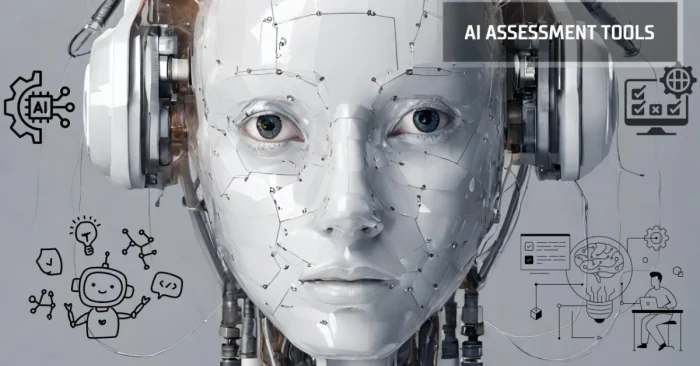AI Assessment Tools for Students Explained
AI assessment tools are software platforms that leverage artificial intelligence to evaluate student performance across various tasks such as quizzes, essays, projects, and interactive assignments. Unlike manual grading, AI tools analyze patterns, language, and problem-solving approaches to provide both accurate scoring and meaningful feedback.
These tools are widely used in schools, universities, and online learning platforms. They not only save time for educators but also create a fairer and more personalized experience for students. With advancements in natural language processing (NLP) and machine learning, AI systems can now assess open-ended responses, detect plagiarism, and suggest improvement areas.
How AI Assessment Works
AI assessment relies on algorithms trained with massive datasets of student responses. For objective questions, the system matches answers with correct solutions. For subjective tasks such as essays, it evaluates grammar, vocabulary, coherence, creativity, and content accuracy. Some advanced platforms also track behavioral data like time spent on questions and attempt patterns to assess understanding levels.
Advantages of AI Assessment Tools
Students and educators benefit in several ways:
- Instant feedback: Students know their mistakes immediately and can improve faster.
- Personalized learning: AI highlights individual strengths and weaknesses.
- Time efficiency: Teachers save hours of grading work.
- Fairness: Eliminates bias in manual evaluation.
- Scalability: Can assess thousands of responses simultaneously.
Challenges and Limitations
Despite its advantages, AI in assessments has challenges:
- May misinterpret creative or unconventional answers.
- Requires high-quality training data to avoid bias.
- Overdependence on AI could reduce teacher-student interaction.
- Privacy concerns regarding student data storage.
Thus, AI assessment should complement not replace human evaluation.
Choosing the Right AI Assessment Tool
Selecting the best AI assessment tool for students depends on learning goals, subject areas, and technical requirements. Some platforms focus on multiple-choice grading, while others handle essay evaluation or project-based assessments. Schools must also consider data privacy regulations and ease of integration with existing learning management systems (LMS).
Key Features to Look For
When evaluating AI assessment tools, look for:
- Support for multiple assessment formats (MCQs, essays, coding).
- Real-time feedback and personalized suggestions.
- Integration with popular LMS platforms like Canvas, Moodle, or Google Classroom.
- Data analytics dashboards for teachers and administrators.
- Secure handling of student data in compliance with GDPR or FERPA.
Popular AI Assessment Tools for Students
Some well-known AI-powered assessment platforms include:
- Gradescope: Automates grading for both written and digital assignments.
- Turnitin Draft Coach: Provides AI-driven writing feedback and plagiarism detection.
- Quizizz AI: Generates adaptive quizzes and instant feedback.
- Coursera AI Evaluator: Assesses open-ended answers in online courses.
- Century Tech: Combines assessments with adaptive learning paths.
Best Practices for Educators
To make the most of AI assessment tools, educators should:
- Combine AI results with teacher feedback for balance.
- Train students to use AI feedback for self-improvement.
- Monitor AI outputs to catch errors or unfair evaluations.
- Ensure ethical use of data and student consent.
Future of AI in Student Assessments
AI assessments are expected to become more personalized, context-aware, and capable of evaluating creativity and problem-solving rather than just memorization. With multimodal AI models, future tools could analyze student speech, handwriting, and even collaboration skills in real time.
FAQs About AI Assessment Tools for Students
1. Are AI assessment tools accurate?
AI tools are highly accurate for objective questions but may require human oversight for creative or subjective tasks such as essays and projects.
2. Can AI replace teachers in grading?
No, AI should be seen as a supportive tool. While it speeds up grading, human teachers are still needed to provide context, mentorship, and emotional understanding.
3. Do AI assessment tools work for all subjects?
Yes, but effectiveness varies. They are highly reliable in STEM subjects and structured writing tasks, while subjects requiring creativity may still need teacher involvement.
4. Is student data safe with AI assessment platforms?
Most reputable tools follow strict security standards like GDPR or FERPA. However, institutions should always review privacy policies before adopting a tool.






